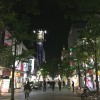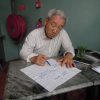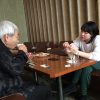Interviewer: Junko Nagatomo
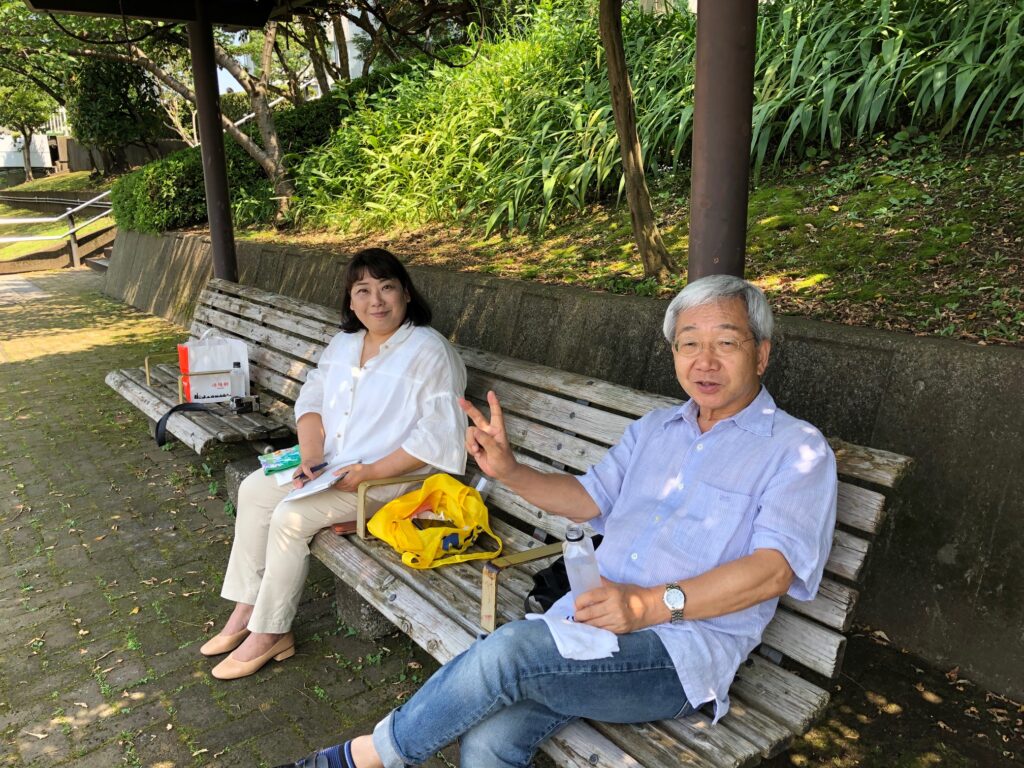
Nagatomo:Today’s topic is the art of decluttering or living a minimalist lifestyle. Decluttering is a thought process of yoga. I didn’t know this, but in Japanese the three characters that make up the word Danshari, or decluttering, each have a meaning.
断―(dan) the refusal of things coming into your home or life
捨―(sha) the discarding of unwanted things
離―(ri) to abandon the obsession of possessing things
So, decluttering is not just about throwing things away, but also about organizing your surroundings and reducing fixations on having possessions, which in turn reduces mental stress. I became interested in decluttering about three years ago when I was in the process of moving. I had so many things packed into a small closet like a tetras puzzle. When I finally took everything out, way in the back were many things I had forgotten about or already had a duplicate. So when I moved, I threw away so many things that weren`t being used and now I really try to avoid possessing and keeping unnecessary things.
Mende:However, I think many Japanese feel that fewer possessions doesn’t really relay a lived-in, at-home feel. In western culture it isn’t uncommon to continue using a pair of your grandfather`s shoes, bag, or other items for tens of years. But Japanese seem to use things for a shorter cycle or just single usage. Experts also say that Japanese consumers are not satisfied unless there is a variety of merchandise to choose from on store shelves.
Nagatomo:So many different inexpensive things are sold at the 100 yen shop leading to so many casual shoppers. I don’t want to buy things that I am just going to throw away. I would rather invest in and use well-made things for a long time. Some people sell some of their used and still wearable clothing on flea market style websites. You seem to have a limited number of possessions at home.
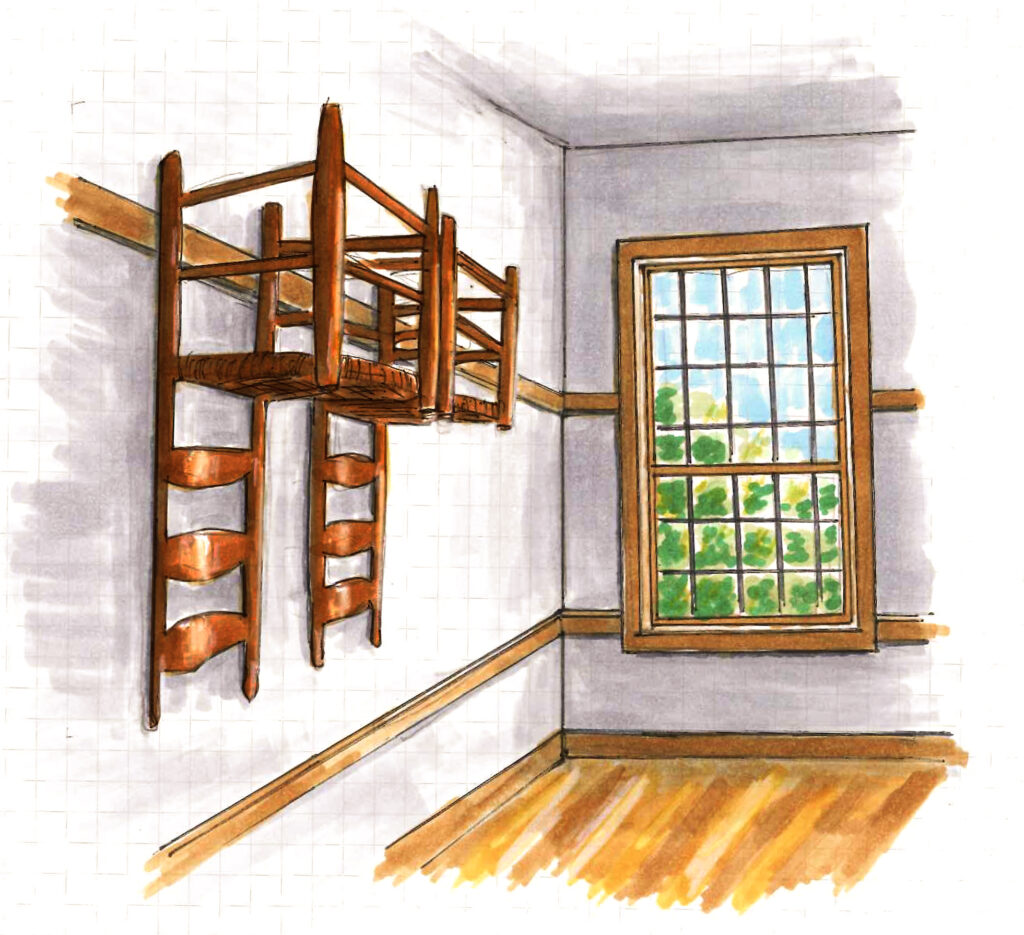
Mende: I try not to hold on to a lot of possessions and avoid taking in new things. Speaking of the minimalist lifestyles, when I was a student I took a trip to the east coast of the United States and was introduced to the Shaker`s way of life. It was very eye opening. They take very good care of their possessions and keep them clean. For example, after using a chair, they put it away by nicely stacking it against the wall. And it fits beautifully in its place. It was like seeing the origins of design. I was so impressed! So I try to think like a Shaker at home.
Nagatomo: When LPA moved this year, we disposed of and organized many things.
Mende:Yes, we did. Although, some staff still have mountains of papers sitting on their desks. I guess, some people just feel reassured when they are surrounded by mountains of things.
Nagatomo:Sure, I don’t think decluttering is for everyone. However, I feel more comfortable and relaxed with fewer, organized things. But the opposite is also true that some find it reassuring to surround oneself with many things. Some people are stress shoppers and buy when they feel stressed. Nowadays, so many things are so readily available, that it is easy to continually buy and buy compulsively. I have my things organized and I try to avoid unnecessarily adding to them. Decluttering is not just about disposal, but I think it is an important quest to discovering the necessary and important things in our lives.
Mende:It is also important to follow beautification practices at the office too.
Most Japanese homes are built with a framework that blurs the concept of indoors and outdoors. The differentiation between public and private is very ambiguous for many Japanese. However, many westerners keep their houses squeaky clean, but seem to have no problem littering in public. Many Japanese naturally like to keep not just their house, but also visual surroundings clean. I think it is important to sense one’s inner self and larger surroundings.
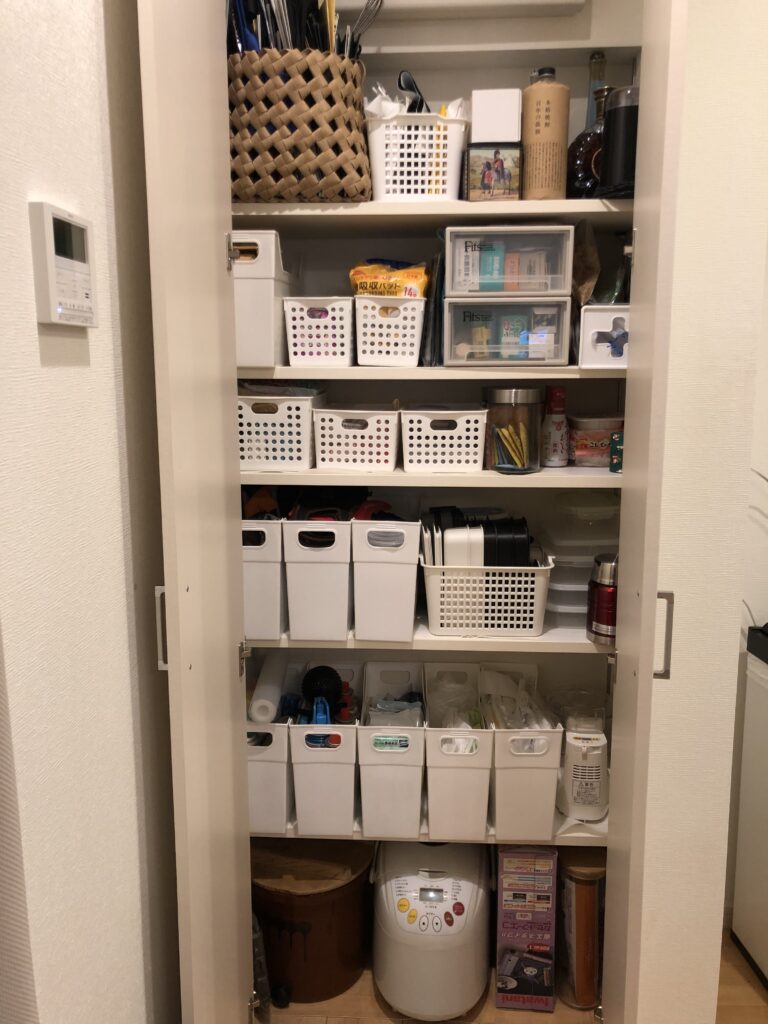
Nagatomo:Not so long ago I don`t think decluttering or “trash houses” were even topics of discussion. I threw so much stuff away when I moved! I can’t remember a time when I was so buried in the unnecessary stuff from casual shopping. I didn’t even know what I owned anymore and freely and willingly bought duplicates. I regret that most of it ended up in the trash. Now, I am more organized and I try to take care of the things that I have so they don’t end up in the trash. It’s funny, while organizing my things, my thoughts and personal relationships also seemed to become clearer.
Mende:Not just at home, but on a global scale we need to rethink the enormous trash problem. Trash is destroying natural environments of the planet earth. This is the feeling that we need to remember and keep with us on a daily basis.
Nagatomo : I hope to become more decisive about who are the important people and what are the important things in my life and spend my time with them. Thank you for a good talk today.







